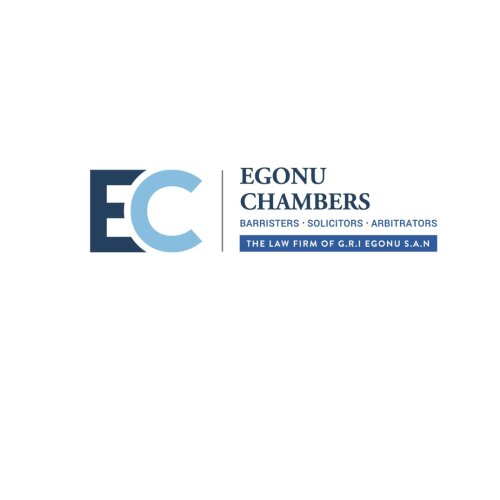Best Antitrust Lawyers in Onitsha
Share your needs with us, get contacted by law firms.
Free. Takes 2 min.
List of the best lawyers in Onitsha, Nigeria
About Antitrust Law in Onitsha, Nigeria
Antitrust law, also referred to as competition law in Nigeria, promotes fair competition and prohibits practices that restrict trade. In Onitsha, as with the rest of Nigeria, these laws are governed by the Federal Competition and Consumer Protection Act (FCCPA) of 2019. The law seeks to eliminate monopolies, prohibit abuse of a dominant market position, and penalize other unfair and restrictive business practices.
Why You May Need a Lawyer
Understanding and navigating antitrust laws can be complex given the economic principles and legal doctrines involved. You may need a lawyer to prevent inadvertent violations, help you structure business practices and drafts agreements to comply with the law, advocate in case of investigations and litigation regarding alleged violations, or to guide you in merger and acquisition processes which demand strict antitrust scrutiny and compliance.
Local Laws Overview
The key pillars of the FCCPA that impact antitrust issues include prohibition of agreements to restrain competition, abuse of a dominant market position, and control of mergers and acquisitions. The Act also established the Federal Competition and Consumer Protection Commission (FCCPC), which is responsible for enforcing the provisions of the act. Therefore, businesses in Onitsha must ensure they are in compliance with this law to avoid punitive measures from the regulatory body.
Frequently Asked Questions
What is considered a violation of antitrust law in Onitsha?
Any activity seen to restrain trade like fixing prices, creating a monopoly, colluding to restrict competitions, or abusing a dominant market position could be considered a violation.
What are the potential penalties for violating antitrust laws?
Penalties can range from fines to imprisonment or both. Businesses can also be compelled to restructure operations to eliminate the violation.
Can private entities sue for antitrust violations under Nigerian Law?
Yes. The FCCPA provides for private action by any person who suffers loss or damage as a result of a violation of its competitive provisions.
Is there a voluntary merger notification provision?
Yes. Merger parties are generally advised to notify the FCCPC to determine if their proposed merger would substantially limit competition.
What happens if an international company violates antitrust laws within Nigeria?
The FCCPC can impose sanctions and penalties on any company, national or international, operating within Nigeria and found to be in contravention of the provisions of the FCCPA.
Additional Resources
The Federal Competition and Consumer Protection Commission (FCCPC) website contains rich resources and updated information on the regulation and administration of competition law in Nigeria. For legal advice and representation, there are several law firms in Onitsha with experts versed in competition law/antitrust matters.
Next Steps
If you need legal assistance in antitrust, it is advisable to engage the services of a reputable law firm in Onitsha or contact the Legal Aid Council of Nigeria for assistance. Before entering into business agreements or making significant changes to your business operation, it is also recommended to seek legal counsel on possible antitrust implications.
Lawzana helps you find the best lawyers and law firms in Onitsha through a curated and pre-screened list of qualified legal professionals. Our platform offers rankings and detailed profiles of attorneys and law firms, allowing you to compare based on practice areas, including Antitrust, experience, and client feedback.
Each profile includes a description of the firm's areas of practice, client reviews, team members and partners, year of establishment, spoken languages, office locations, contact information, social media presence, and any published articles or resources. Most firms on our platform speak English and are experienced in both local and international legal matters.
Get a quote from top-rated law firms in Onitsha, Nigeria — quickly, securely, and without unnecessary hassle.
Disclaimer:
The information provided on this page is for general informational purposes only and does not constitute legal advice. While we strive to ensure the accuracy and relevance of the content, legal information may change over time, and interpretations of the law can vary. You should always consult with a qualified legal professional for advice specific to your situation.
We disclaim all liability for actions taken or not taken based on the content of this page. If you believe any information is incorrect or outdated, please contact us, and we will review and update it where appropriate.









